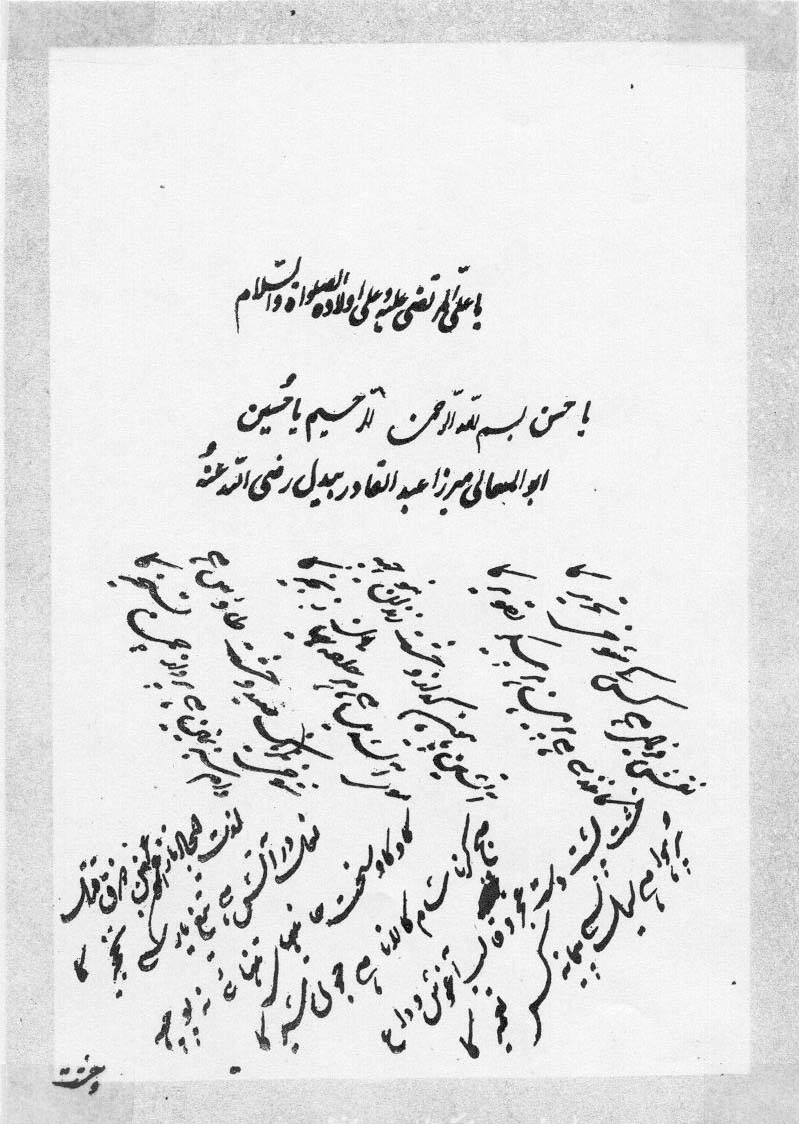FWP:
SETS == EXCLAMATION;
IDIOMS; PARALLELISM; POETRY
COMMERCE: {3,3}
SPEAKING: {14,4}
Nazm rightly emphasizes both the parallelism, and the enjoyably exclamatory use of idioms, that give this verse its oomph. As Bekhud Dihlavi notes, the verse seems to follow naturally from its predecessor, {201,7}; he also singles out these two verses as, collectively, the high point of the ghazal.
And of course the idioms are not just generally appropriate in mood-- able to express ruefulness, vexation, frustration, a shrug of the shoulders, wry amusement, or whatever other tone you want to read them in-- but are also specifically appropriate to the semantic content of each line. The first line decrees an action, a 'punishment', and its idiomatic ending resigns itself in terms of another action, expressed in an archaic form of the passive-- 'what can be done?'. The second line seems to evoke a mercantile transaction: there is a 'price' for a kind of 'wealth' or 'property', so that 'what can you say?' is appropriate to a situation of bargaining or negotiation. And of course the 'wealth' is that of poetry, literally 'speech', itself, so 'what can you say?' acquires a whole extra dimension of relevance.
Bekhud Mohani insists that the verse is a complaint against
the way the world in general treats poets 'nowadays'; needless to say, there's
no such indication of temporality in the verse itself. Moreover, 'envy/jealousy'
is often felt by rival lovers, not just by rival poets; and 'tyranny' is particularly
appropriate to the beloved's behavior. So the verse might also ruefully refer
to the way the lover's reward for his poetic skill is jealousy from his rivals, along with cruelty (which can often be a sign of favor, acceptance, and attention)
from the beloved herself.

Nazm:
In this verse too the beauty is only because of the similarity of the construction and ornamentation [of the two lines]. They say kyā kīje and kyā kahiye on an occasion of feeling weakness. (225)
== Nazm page 225